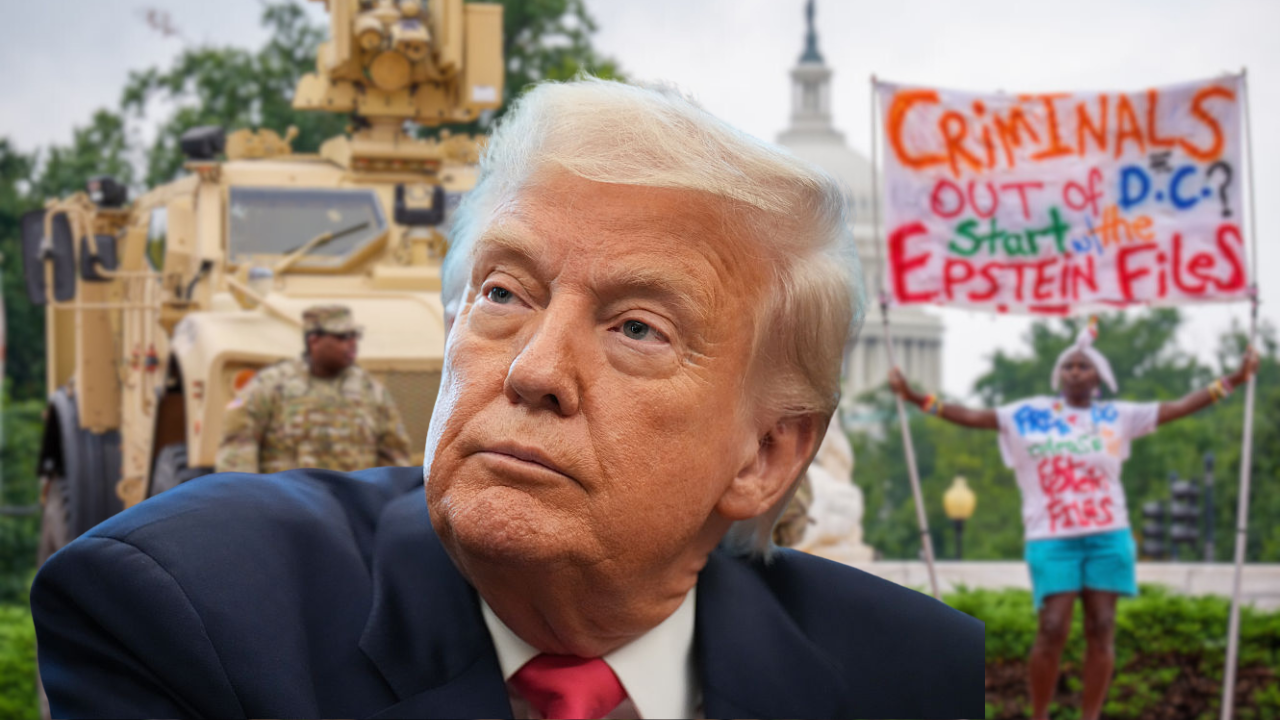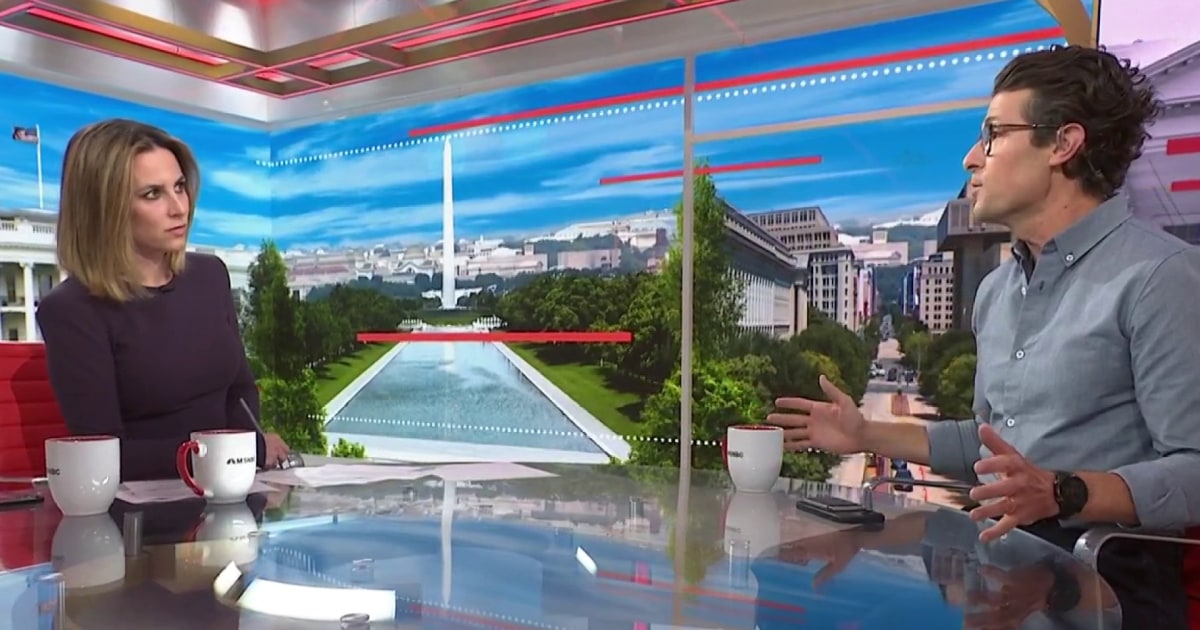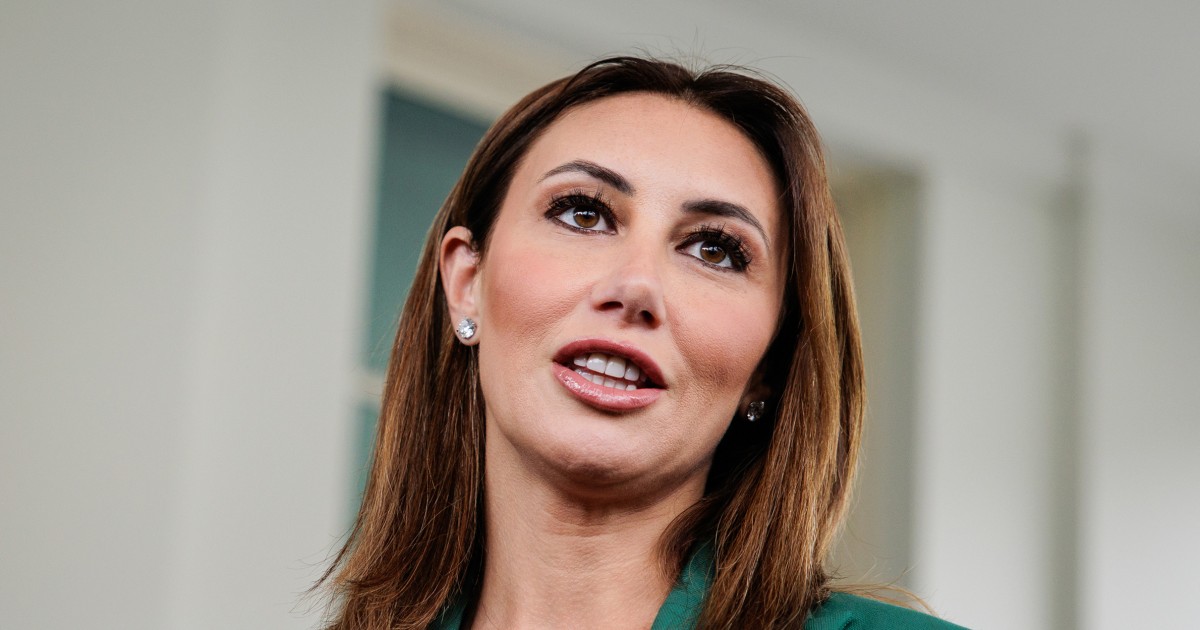Some responded with strongly worded letters. Others spoke out publicly, accusing Attorney General Pam Bondi of trying to unlawfully bully governors and mayors.
Democratic state and local officials are forcefully pushing back against threats from Attorney General Pam Bondi that their jurisdictions could be stripped of federal funding or they could face criminal prosecution if they don’t back away from “sanctuary” policies friendly toward suspected undocumented immigrants.
Bondi last week sent a letter to leaders of more than 30 Democratic-led cities, counties and states that accused the jurisdictions of interfering with federal immigration enforcement.
Some responded with their own strongly worded letters. Others seized the moment to speak out in a public show of resistance, accusing Bondi of trying to unlawfully bully governors and mayors amid the political divide over President Donald Trump’s aggressive immigration tactics.
But what happens next remains deeply unclear, according to those Democratic officials, who have described the events of the past week as startling and unprecedented, even against the backdrop of the tumultuous launch of the second Trump term. They are staying mum so far about how much they are coordinating with each other to combat potential actions by the administration.
In Seattle, Mayor Bruce Harrell (D), who is seeking a second term, told The Washington Post that the Aug. 13 letter from Bondi warned that his “jurisdiction” had been “identified as one that engages in sanctuary policies and practices that thwart federal immigration enforcement.” It did not reference his city by name, mention specific local laws or policy, or cite Seattle’s crime rates, which Harrell pointed out are “down in all major categories.”
Days later, he was standing behind Washington Gov. Bob Ferguson (D), who had received a nearly identical letter.
“A letter like this cannot be normalized,” Ferguson said Tuesday, speaking to reporters at the state Capitol in Olympia. He called the attorney general’s threats a “breathtaking” tactic aimed at pressuring elected officials to “bend a knee” to Trump.
Ferguson told Bondi in a letter that his state “will not be bullied or intimidated by threats and legally baseless accusations.”
On the opposite coast, Boston Mayor Michelle Wu (D) stepped onto the plaza outside City Hall for a news conference that quickly took on the feel of an anti-Trump rally.
“Stop attacking our cities to hide your administration’s failures,” said Wu, the daughter of Taiwanese immigrants. “Boston follows the law, and Boston will not back down from who we are and what we stand for.”
The Trump administration’s intensifying efforts to identify and deport suspected undocumented immigrants include the deployment of thousands of Immigration and Customs Enforcement officers in U.S. cities as they seek to meet a directive from White House Deputy Chief of Staff Stephen Miller to make at least 3,000 arrests a day.
Bondi and other Trump administration officials have insisted on cooperation from state and local officials, including access to law enforcement facilities and, in some cases, officers as they seek to step up deportation efforts.
Trump last week ordered the deployment of National Guard troops to D.C. and has sought to expand federal control over D.C. police, claiming the city was not doing enough to stem violent crime. He has indicated that cities like Baltimore, Chicago and New York could be next, likening them to urban hellscapes ruined by crime and lawlessness. All three cities are listed as sanctuary jurisdictions on federal government websites.
On Thursday, Trump reiterated his pledge to pursue similar crime crackdowns in Democratic-led cities.
In an interview last week with Fox News, Bondi suggested a takeover could be on the table for any city the administration deems out of compliance with federal immigration laws. “You better be abiding by our federal policies and with our federal law enforcement, because if you aren’t, we’re going to come after you,” she said.
Numerous city and state officials in their letters to Bondi questioned the legality of the Trump administration’s threats against their jurisdictions, with some pointedly critical of Trump’s actions in D.C. and in Los Angeles, where the president — despite the opposition of state and local officials — activated National Guard troops amid protests over the administration’s immigration arrests.
Responding to a letter sent to Illinois Gov. JB Pritzker (D), Ann Spillane, the governor’s general counsel, noted federal courts had repeatedly upheld an Illinois law that restricts state law enforcement involvement in immigration enforcement. Spillane said that Illinois officers’ primary focus is fighting crime and that they routinely cooperate with federal law enforcement on those issues. “We have not observed that type of coordination with local law enforcement in Washington, D.C. or Los Angeles,” Spillane wrote, according to a copy of the letter obtained by The Post.
Bondi’s letters also arrived at the offices of Colorado Gov. Jared Polis (D) and Denver Mayor Mike Johnston (D). Trump homed in on the state during the presidential race last year, baselessly claiming one of its cities had been overrun by Venezuelan gangs.
Johnston’s city has already lost millions in federal grants intended for migrant shelters, and the Justice Department sued him, Polis, and other state and local officials in May over what it called “disastrous” sanctuary policies. Colorado law bars local police officers from asking a person for their immigration status, arresting someone based only on that status and giving that personal information to federal authorities.
“It is immaterial to whether or not you were doing 55 in a 45, where you were born, and so we don’t ask for that information,” Johnston said. “We don’t have that information.” On Thursday, he remained adamant that Denver had not violated any laws. Bondi’s allegations, he said, are “false and offensiveOn Thursday, Trump reiterated his pledge to pursue similar crime crackdowns in Democratic-led cities.
In an interview last week with Fox News, Bondi suggested a takeover could be on the table for any city the administration deems out of compliance with federal immigration laws. “You better be abiding by our federal policies and with our federal law enforcement, because if you aren’t, we’re going to come after you,” she said.
Numerous city and state officials in their letters to Bondi questioned the legality of the Trump administration’s threats against their jurisdictions, with some pointedly critical of Trump’s actions in D.C. and in Los Angeles, where the president — despite the opposition of state and local officials — activated National Guard troops amid protests over the administration’s immigration arrests.
Responding to a letter sent to Illinois Gov. JB Pritzker (D), Ann Spillane, the governor’s general counsel, noted federal courts had repeatedly upheld an Illinois law that restricts state law enforcement involvement in immigration enforcement. Spillane said that Illinois officers’ primary focus is fighting crime and that they routinely cooperate with federal law enforcement on those issues. “We have not observed that type of coordination with local law enforcement in Washington, D.C. or Los Angeles,” Spillane wrote, according to a copy of the letter obtained by The Post.
Bondi’s letters also arrived at the offices of Colorado Gov. Jared Polis (D) and Denver Mayor Mike Johnston (D). Trump homed in on the state during the presidential race last year, baselessly claiming one of its cities had been overrun by Venezuelan gangs.
Johnston’s city has already lost millions in federal grants intended for migrant shelters, and the Justice Department sued him, Polis, and other state and local officials in May over what it called “disastrous” sanctuary policies. Colorado law bars local police officers from asking a person for their immigration status, arresting someone based only on that status and giving that personal information to federal authorities.
“It is immaterial to whether or not you were doing 55 in a 45, where you were born, and so we don’t ask for that information,” Johnston said. “We don’t have that information.” On Thursday, he remained adamant that Denver had not violated any laws. Bondi’s allegations, he said, are “false and offensive.”
In his letter to Bondi, Minnesota Gov. Tim Walz (D) questioned Bondi’s demand that he identify how he’s working to eliminate laws, policies and practices that she claimed impede federal immigration enforcement.
“In a democracy, governors do not unilaterally ‘eliminate laws.’ The role of the executive is to take care that the laws are faithfully executed, not to pick and choose which to follow,” wrote Walz, the 2024 Democratic nominee for vice president. “In Minnesota, we take pride in following the law.”
New York Mayor Eric Adams, who promised to toughen immigration enforcement in his city after the Trump administration dropped corruption charges against him this spring, did not respond directly to Bondi’s letter. The task was passed on to the city’s corporation counsel, who sent a two-paragraph letter that said the city was not thwarting federal immigration policies but operating under a “system of federalism” that means states and cities do not have to undertake federal mandates.
Kayla Mamelak Altus, a spokeswoman for Adams, said the city was taking Trump’s threat to possibly target New York seriously and preparing for any scenario. But she declined to reveal what that playbook might look like.
In Washington, Ferguson, who previously served as the state’s attorney general before he was elected governor in November, said he had anticipated some dramatic action from the Trump administration. Late last year, before he was sworn into office, Ferguson spoke to state finance officials to determine how the state would fare fiscally if it lost federal funding, which makes up 28 percent of the budget.
But Ferguson did not anticipate Bondi’s threat to potentially prosecute him or any other elected official in the country over differences in policy. As attorney general, he had been the first to file a lawsuit over Trump’s 2017 executive order to ban visitors and refugees from several predominantly Muslim countries.
On Tuesday, Ferguson recalled trying to reassure his 8-year-old daughter at the time, who worried something might happen to him for challenging Trump.
“I remember telling her … ‘We’re lucky to live in a country right where your dad, or any American, can speak out against the president, where your dad can file a lawsuit against the president, say things that are pretty direct about the president, be critical,’” Ferguson recalled.
It was something they shouldn’t take for granted, he told her, because in other countries people could get sent to jail for something like that.
Eight years later, Ferguson said he didn’t know what he would say to his daughter now of that freedom to challenge a president. “Maybe I’m not so sure about that,” the governor said.

https://www.washingtonpost.com/nation/2025/08/22/sanctuary-cities-bondi







